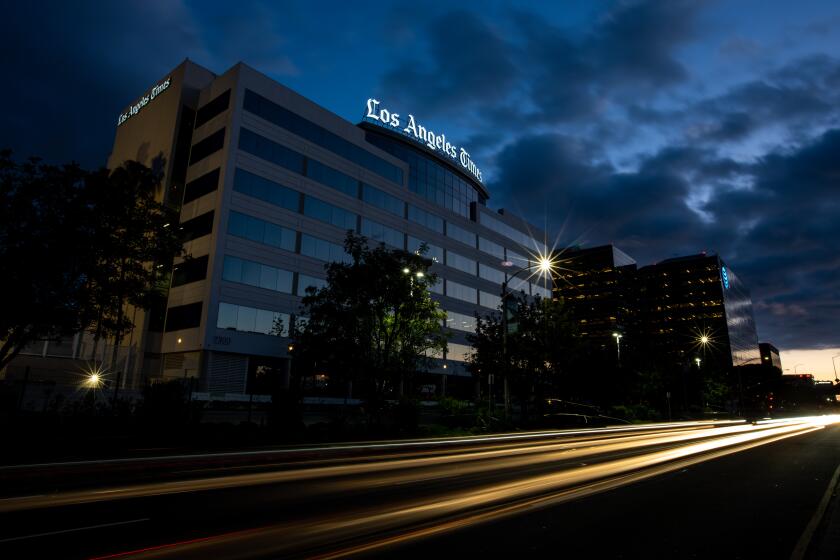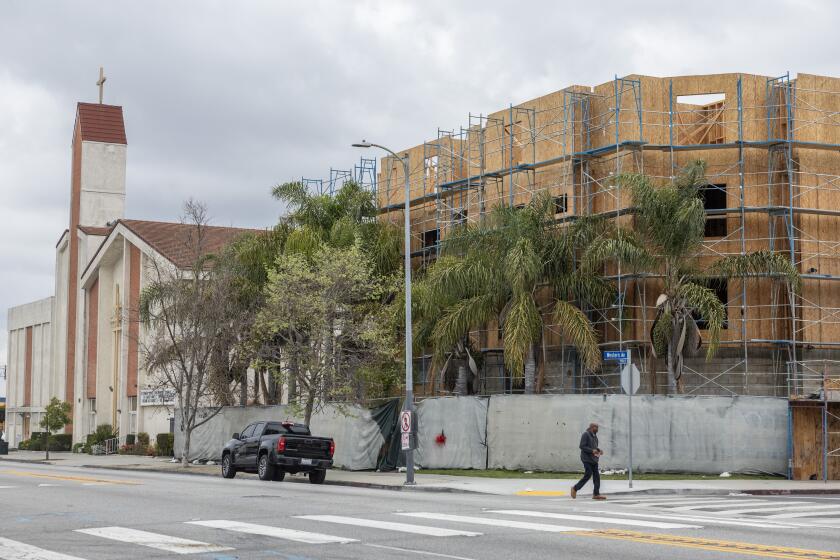Rebel in a company town
Several years ago I participated in a public “debate” about the exigent matter of whether Los Angeles was better than New York or vice versa. I put “debate” in quotes because it was more like a reading followed by 20 minutes of lethargic sparring. The event was called something like “New York vs. L.A.: Which Is Better,” and people had actually shown up to watch as if they might learn something. My opponent was a fortysomething writer/artist/DJ, or something along those lines. I won’t attempt to re-create his oration, but these were his major talking points.
L.A. is la-la land.
Everyone is in the entertainment business.
Everyone has had plastic surgery. Meg Ryan’s lips! Can you believe?
The smog. Oh my God.
The traffic. Oh my God.
There is no literary scene. There is no theater scene. There is no art scene.
Et cetera.
Then it was my turn. I hadn’t lived in L.A. all that long and didn’t have a lot of ammunition, but I gave it my best shot. I mentioned all the people I knew who did not work in the entertainment business, had not had plastic surgery and drove crappy cars. I can’t really remember what else I said because ever since, I’ve been kicking myself over what I should have said to him: “You left out the part about how L.A.’s only cultural advantage is being able to make a right turn on a red light.”
When it comes to cliches about Los Angeles, that one line from “Annie Hall” pretty much does the work of a thousand tired axioms about surgical enhancements and smog. After all, it’s brought to us by the grand marshal of New York cliches, Woody Allen, who, had I used him as the sole evidence in my argument, would have furnished such keen debating points as “everyone in New York is in psychoanalysis, wears black and lives in a loft with Max von Sydow.”
In other words, if Los Angeles is a town where people work in only one industry, then New York is a town where clothes come in only one color. And since everyone knows that New Yorkers also wear brown and dark green, I think I can safely rest my case.
Except during Oscar season. This is a time — and depending on your definition of “season,” it can be a very long time — when L.A.’s reputation for one-track enthusiasms goes from largely unwarranted to sadly justified. Suddenly, movie advertisements are no longer about attracting audiences (“now in theaters”) but influencing Academy voters (“for your consideration”). DVDs will suddenly be referred to as “screeners.” Oscar parties (not just bashes thrown by Elton John but grim living-room affairs hosted by friends with too much IKEA furniture) will be scheduled and prepared for with breathless anticipation.
Meanwhile, in the rest of the country and indeed the world, just about any mention of Los Angeles is sure to have some sort of Academy Awards tie-in. If a major disaster hit Southern California between now and Sunday, you’d better believe we’d be kept up to date on the condition of the Kodak Theatre.
I’ve written before about how overrated the Oscars are, and, to my total lack of surprise, readers were irate. It wasn’t just that they thought I was a curmudgeon; I was a traitor to the very soul of Los Angeles! I was like a Pittsburgher who didn’t care about the Steelers or a San Franciscan who, I don’t know, wears polyester. Practically unheard of! Not to mention profoundly confusing to many people and deeply disrespectful of L.A. esprit.
But c’mon. Isn’t it more disrespectful to feed the one-industry-town myth by elevating the Oscars from a yearly event to a kind of holy season for the celebrity-industrial complex? Don’t most of us have better things to do? Like work in our non-entertainment-industry jobs and drive our crappy cars? Don’t we have some art galleries to check out or some theater to watch? Or will we continue to obsess for months about gold statues and designer gowns, thereby enabling people who call the city la-la land — a term that should be a legally punishable offense?
Don’t do it, my friends! Let the tourists fill up the Oscar-related coffers. Have your fun on Sunday night, but don’t spend the next six months Monday-morning quarterbacking and the six months after that making predictions for 2012. After all, this is a town brimming with opportunities to make right turns on red lights. So why waste another minute thinking about the red carpet?
More to Read
A cure for the common opinion
Get thought-provoking perspectives with our weekly newsletter.
You may occasionally receive promotional content from the Los Angeles Times.











